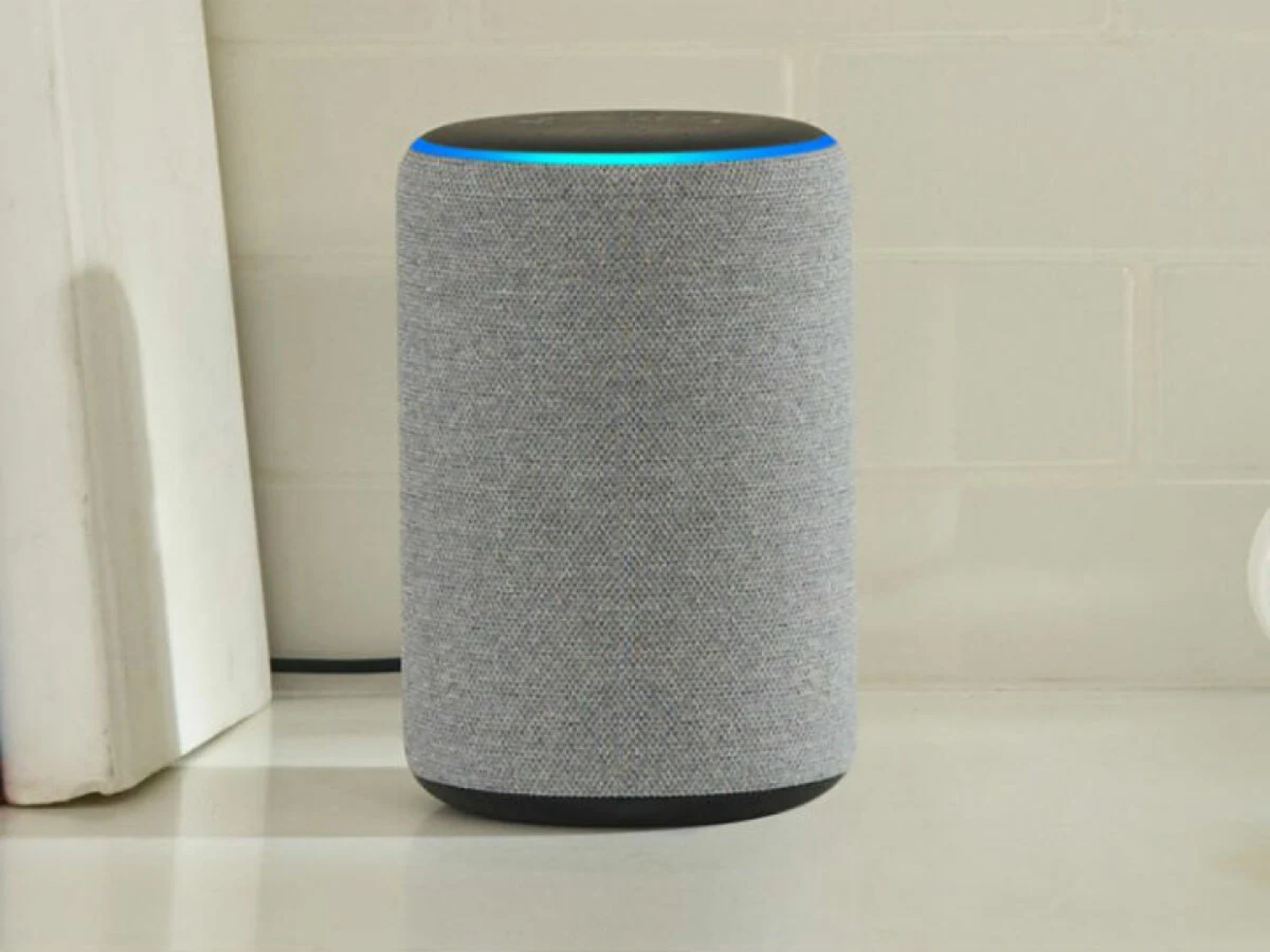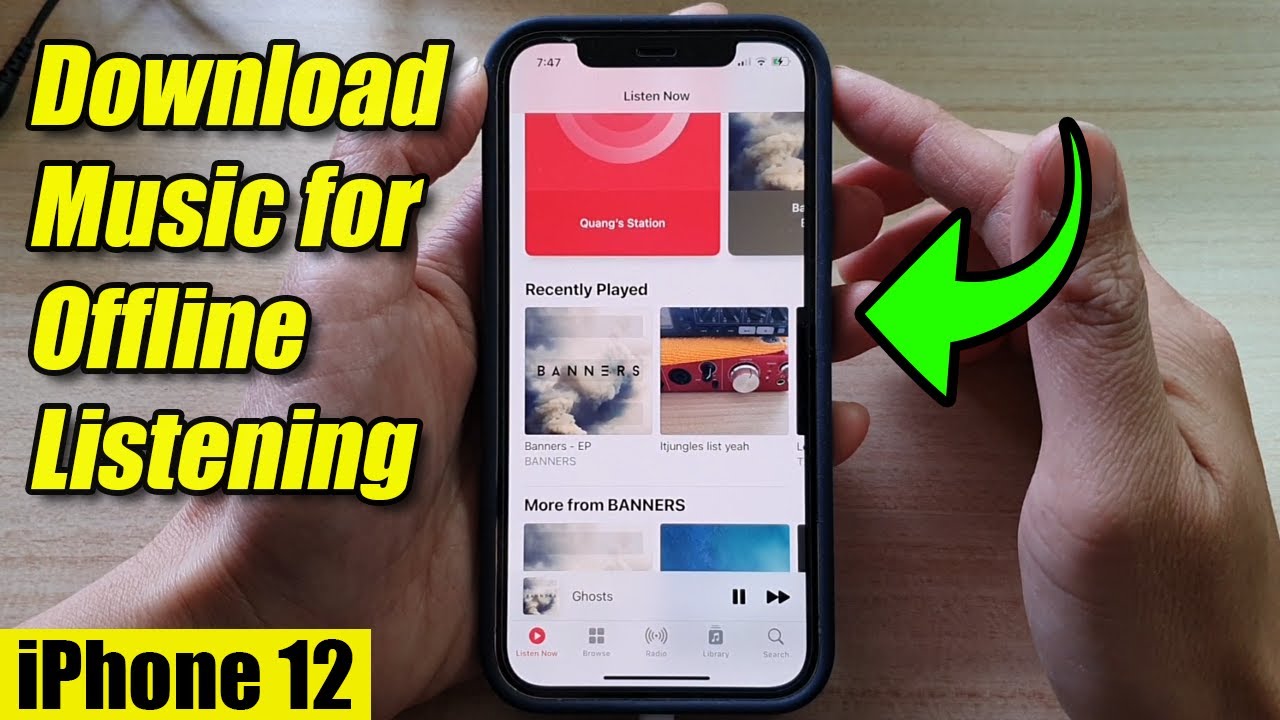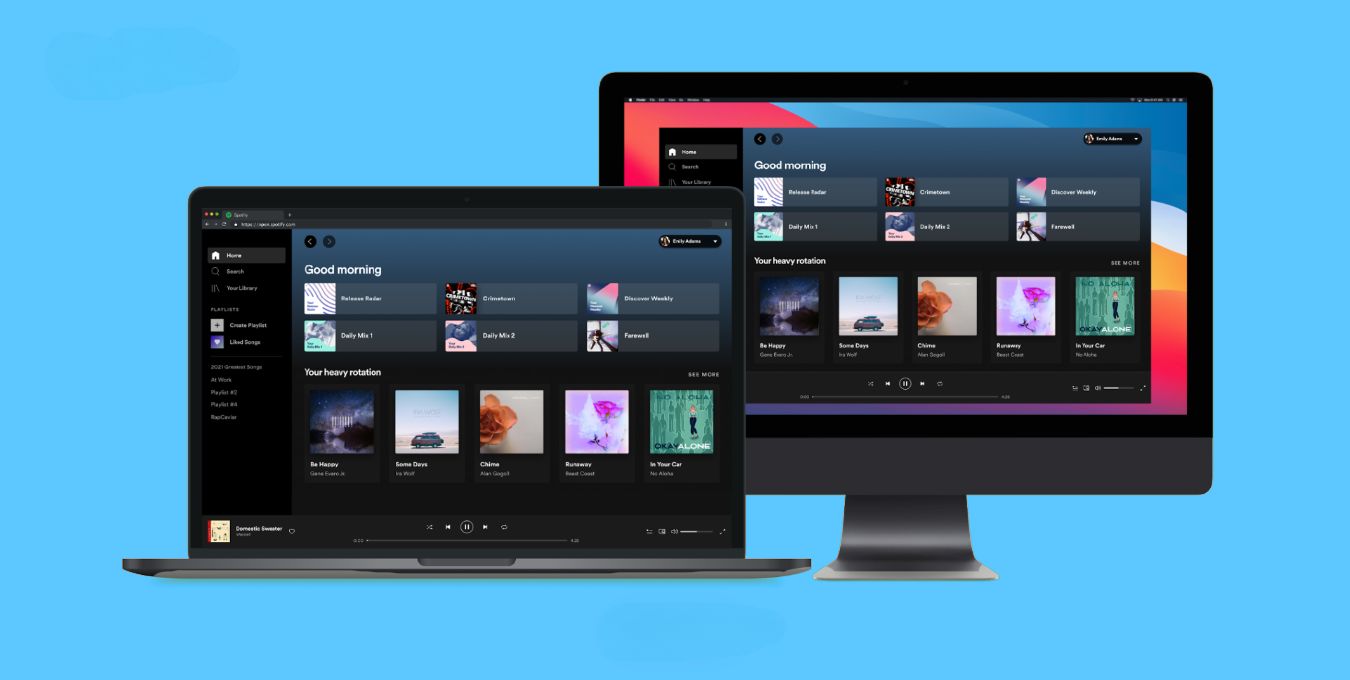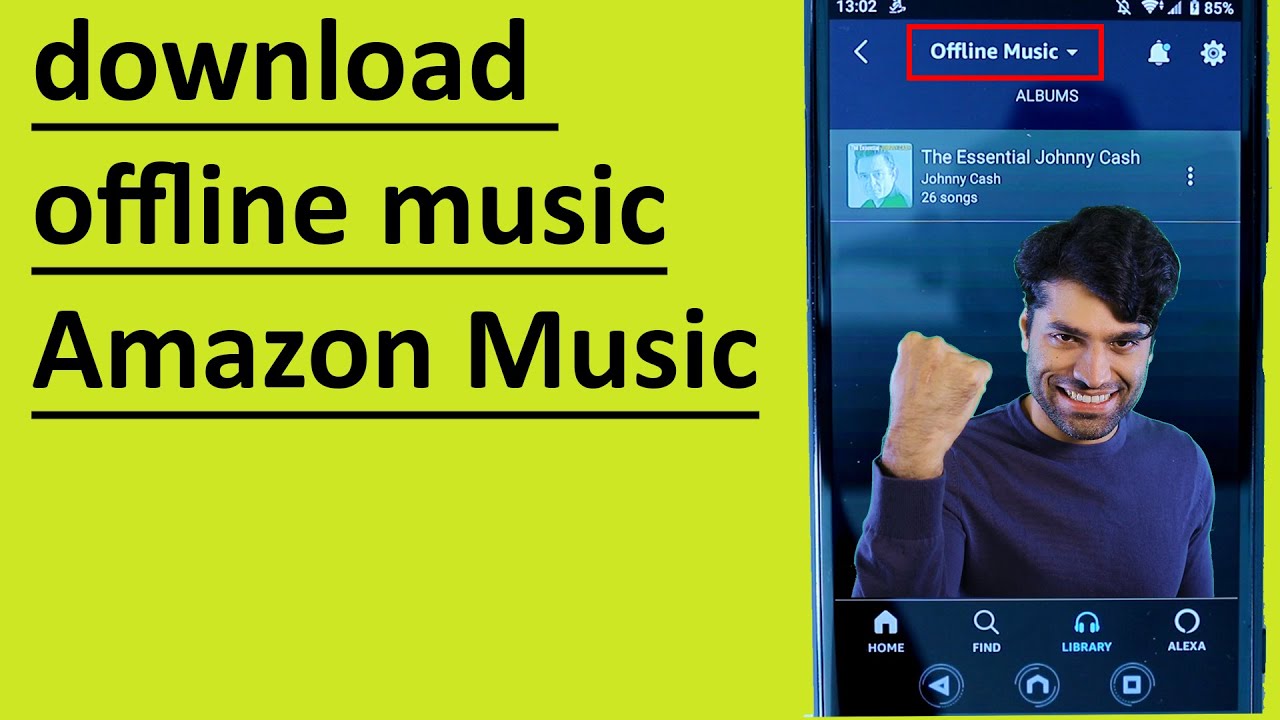Introduction
Are you a music enthusiast who enjoys discovering new songs and expanding your music collection? With the advent of the internet, downloading music has become incredibly convenient, allowing you to access a vast library of songs anytime, anywhere. However, finding a reliable and legal source to download music can be a daunting task.
In this article, we will guide you through the process of safely and legally downloading music from the internet. We will provide tips on finding reputable music download websites, understanding different file formats, avoiding copyright infringement, and transferring music to your devices. Additionally, we will discuss the importance of managing and organizing your music library, as well as troubleshooting common download issues.
Before diving into the world of music downloads, it is crucial to emphasize the importance of acquiring music legally. Illegal downloading not only supports piracy but also exposes you to potential malware and viruses. By following the guidelines outlined in this article, you can enjoy your favorite tunes while being respectful of the artists’ rights and contributing to a thriving music industry.
So, if you are ready to explore the world of digital music and discover new artists, let’s delve into the process of downloading music from the internet. By the end of this guide, you will have the knowledge and tools to build an impressive music library and enjoy your favorite songs whenever and wherever you want.
Finding and Choosing a Reliable Music Download Website
The first step in downloading music from the internet is to find a reliable music download website. With countless options available, it’s crucial to choose a reputable platform that offers a wide selection of songs and ensures the security of your downloads.
Start by conducting thorough research and reading reviews of different music download websites. Look for platforms that have a good reputation among users and offer a diverse collection of music across various genres. Websites that have been around for a while and have favorable feedback are generally more reliable.
When evaluating websites, pay attention to factors such as user interface, downloading speed, and file quality. A user-friendly interface will make your music download experience more enjoyable and intuitive. Additionally, ensure that the website provides high-quality audio files, such as MP3 or FLAC, to ensure optimal sound reproduction.
It is also important to consider the legality of the website. Avoid platforms that openly promote piracy or offer copyrighted material without proper licensing. Downloading copyrighted music without permission is illegal and supports the infringement of intellectual property rights. Instead, opt for websites that obtain music licenses and offer legal downloads, such as digital music stores or streaming platforms with a download feature.
Furthermore, be cautious of websites that require you to provide personal or payment information. Legitimate music download websites typically do not ask for sensitive details unless you are making a purchase. Always prioritize your online security and avoid sharing personal information with untrustworthy sources.
Lastly, consider the pricing structure of the website. Some platforms offer pay-per-download options, while others offer subscription-based models. Evaluate your budget and music consumption habits to determine which pricing option is more suitable for you. Keep in mind that paying for music supports artists and allows them to continue creating the music you love.
By choosing a reliable music download website, you can ensure a seamless and secure music downloading experience. Take the time to research and evaluate different platforms before making your decision. In the next section, we will explore the importance of understanding different file formats and their compatibility when downloading music from the internet.
Understanding Different File Formats and Their Compatibility
When downloading music from the internet, it’s important to understand the different file formats available and their compatibility with different devices and media players. Each file format has its own characteristics, which can affect the quality of the audio and the compatibility with various devices.
One of the most common and widely supported file formats for music is MP3 (MPEG-1 Audio Layer 3). MP3 files use compression algorithms to reduce the file size without significantly compromising the sound quality. This makes MP3 files versatile and compatible with various devices, including smartphones, tablets, computers, and most media players. However, keep in mind that excessively low bitrates can result in a noticeable decrease in audio quality.
Another popular file format is FLAC (Free Lossless Audio Codec). FLAC files offer high-quality audio without any loss in detail or resolution. This format is ideal for audiophiles and those who prioritize audio fidelity. However, FLAC files tend to be larger in size, so it’s important to check if your devices and media players support this format before downloading.
Other widely used file formats include AAC (Advanced Audio Coding), which is favored by Apple and compatible with their devices, and WMA (Windows Media Audio), commonly used for Windows devices. It’s essential to ensure that your chosen file format is compatible with your device’s operating system and media player software.
When downloading music, you may encounter additional file formats such as WAV, AIFF, and ALAC. These formats provide uncompressed audio and are known for their high quality. However, they consume more storage space, making them less practical for portable devices with limited storage.
Keep in mind that some music download websites offer the option to choose the desired file format for your downloads. Consider your needs and preferences when selecting the file format. If you prioritize quality over file size, you may opt for lossless formats like FLAC or WAV. However, if storage space and compatibility are your primary concerns, MP3 or AAC files may be more suitable.
Understanding different file formats and their compatibility is essential to ensure that your downloaded music can be played on your devices without any issues. In the next section, we will discuss how to avoid legal issues and copyright infringement when downloading music from the internet.
Avoiding Legal Issues and Copyright Infringement
When downloading music from the internet, it’s essential to prioritize legality and respect the rights of music creators. Engaging in copyright infringement not only harms artists and the music industry but can also lead to legal consequences. To ensure a lawful and ethical music downloading experience, follow the guidelines outlined below.
1. Choose legitimate sources: Avoid websites or platforms that promote piracy or offer copyrighted content without proper licensing. Instead, opt for reputable music download websites, digital music stores, or streaming platforms that provide legal and licensed music downloads.
2. Check for copyright information: Before downloading any song, make sure to read the copyright information associated with the file. Some artists may provide their music for free or under Creative Commons licenses, allowing you to download and share their work legally. Respect the terms and conditions set by the copyright holder.
3. Pay for your music: Supporting artists by purchasing their music is one of the most effective ways to ensure their continued creativity. Consider buying songs or albums from legal sources, as this directly contributes to the artists’ livelihood and encourages them to produce more music.
4. Be cautious of file-sharing platforms: Peer-to-peer file-sharing platforms often facilitate the illegal sharing of copyrighted material. By participating in these activities, you risk both legal repercussions and supporting copyright infringement. Avoid using such platforms and focus on legal music downloading methods instead.
5. Understand fair use: Familiarize yourself with the concept of fair use, which allows limited use of copyrighted material for specific purposes such as criticism, commentary, or educational purposes. However, keep in mind that fair use is subjective, and it’s best to consult legal advice or refer to the specific laws in your country to ensure compliance.
By following these guidelines, you can enjoy downloading music from the internet while respecting the rights of music creators. Remember, respecting copyright laws not only protects artists but also ensures a fair and thriving music industry for everyone involved. In the next section, we will explore downloading music from legitimate sources to guarantee a legal and authentic music collection.
Downloading Music from Legitimate Sources
When it comes to downloading music from the internet, it’s important to choose legitimate sources to ensure you have a legal and authentic music collection. By utilizing reliable platforms and services, you can support artists and access high-quality music for your enjoyment. Here are some popular options for downloading music legally.
1. Digital Music Stores: Online stores such as iTunes, Amazon Music, and Google Play Music offer a vast catalog of licensed songs for purchase. These platforms provide a convenient and legal way to download music directly to your devices. Additionally, they often offer options to stream music on-demand or save songs for offline listening.
2. Streaming Platforms with Offline Downloads: Many streaming services like Spotify, Apple Music, and Deezer allow users to download songs for offline listening. While this does not provide permanent ownership of the music, it offers a legal and convenient way to enjoy music without the need for constant internet connectivity.
3. Artist Websites: Many artists release their music directly through their own websites or Bandcamp pages. This allows them to have more control over their distribution and offer their music for purchase or free download. Visiting their official websites or social media profiles can be an excellent way to discover new music and support independent artists.
4. Creative Commons and Free Music Archives: Creative Commons licenses allow artists to distribute their work with specific permissions granted to users. Websites like SoundCloud, Jamendo, and Free Music Archive host a plethora of songs that artists have made available for free download under Creative Commons licenses. These platforms are great for discovering new talent and expanding your music library legally.
5. Music Blogs and Independent Record Labels: Blogs and independent record labels often provide free music downloads as a way to promote artists. These platforms are particularly valuable for finding niche genres and emerging artists. Explore music blogs and independent labels that align with your musical interests and download the songs they offer with the artists’ permission.
By utilizing these legitimate sources, you can ensure that the music you download is legal, high-quality, and supports the artists behind the songs. Remember to respect the terms and conditions set by the copyright holders and consider contributing to the music industry by purchasing or supporting the artists whose music you enjoy. In the next section, we will discuss using music downloader software as an alternative method for downloading music from the internet.
Using a Music Downloader Software
Music downloader software can be a convenient option for downloading music from the internet. These programs provide a straightforward way to search for and download songs directly to your computer or mobile device. Here are some key points to consider when using music downloader software.
1. Choose a reputable software: There are several music downloader software options available, so it’s important to choose one that is reputable and well-reviewed. Look for software that is regularly updated, has positive user feedback, and offers a wide range of features to enhance your downloading experience.
2. Check for virus protection: Before installing any software, ensure that it provides adequate virus protection. Downloading music from unfamiliar sources can expose your computer or device to potential malware or viruses. A trusted music downloader software will have built-in security measures to detect and prevent any malicious files from being downloaded.
3. Consider the platform compatibility: Music downloader software is available for various operating systems such as Windows, Mac, and mobile devices. Ensure that the software you choose is compatible with your specific device and operating system to avoid any compatibility issues.
4. Explore advanced features: Some music downloader software offers additional features to enhance your downloading experience. Look for options that allow you to specify the quality and format of the downloaded files, organize your music library, and even provide recommendations based on your music preferences. These features can make managing and enjoying your downloaded music more convenient.
5. Be cautious of copyright infringement: While music downloader software can be a legitimate way to download music, it’s crucial to ensure that you are downloading songs from legal and authorized sources. Avoid using software that promotes piracy or allows you to download copyrighted material without proper licensing. Respect the rights of the artists and the legality of the music you download.
Using a music downloader software can be a convenient and efficient way to build your music library. However, it’s important to exercise caution and ensure that you are using reputable software and downloading music legally. By following these guidelines, you can enjoy a seamless and legal music downloading experience. In the next section, we will discuss how to transfer downloaded music to your devices for easy playback.
Transferring Downloaded Music to Your Devices
Once you have downloaded music from the internet, the next step is to transfer it to your devices for easy playback. Whether you want to enjoy your favorite songs on your smartphone, tablet, or dedicated music player, here are some methods for transferring your downloaded music.
1. USB Transfer: One of the most common and straightforward methods is to connect your device to your computer using a USB cable. Once connected, your device should appear as a removable storage device on your computer. Simply locate the downloaded music files on your computer and copy/paste or drag them into the appropriate folder on your device.
2. Cloud Storage: Cloud storage services like Google Drive, Dropbox, or iCloud provide a convenient way to access and transfer your music across multiple devices. Upload the downloaded music files to your preferred cloud storage service, and then download them onto your desired devices through the corresponding cloud storage app.
3. WiFi Transfer Apps: There are various apps available for both computer and mobile devices that enable wireless file transfers. These apps create a local network between your device and computer, allowing you to transfer files without the need for physical connections. Simply install the app on your devices, connect them to the same WiFi network, and follow the on-screen instructions to transfer the downloaded music.
4. Syncing with Music Management Software: If you use music management software like iTunes or Windows Media Player, you can sync your downloaded music with your devices. Connect your device to your computer, open the music management software, and select the downloaded music you want to transfer. Follow the software’s instructions to initiate the sync and transfer the music to your device.
5. Wireless Transfer Speakers: Some speakers and audio systems come with wireless transfer capabilities, allowing you to transfer and play downloaded music directly from your device. Check for Bluetooth or Wi-Fi compatibility on your speaker or audio system and connect it to your device. Follow the manufacturer’s instructions to establish the connection and play your downloaded music wirelessly.
Consider the storage capacity of your devices while transferring music and ensure that you have enough free space to accommodate your entire music library. Additionally, ensure that the transferred music files are compatible with your device’s supported file formats to ensure seamless playback.
By following these methods, you can easily transfer your downloaded music to your devices, allowing you to enjoy your favorite tunes wherever you go. In the next section, we will discuss how to manage and organize your music library effectively.
Managing and Organizing Your Music Library
As your music collection grows, it becomes crucial to effectively manage and organize your library. A well-organized music library allows for easy browsing, quick access to specific songs or albums, and an overall enjoyable listening experience. Here are some tips for managing and organizing your music library efficiently.
1. Meta Tag Editing: Ensure that the metadata of your music files are accurate and consistent. Metadata includes information such as song title, artist name, album, genre, and album art. Using music management software or dedicated tag editing tools, you can edit and add missing information to your music files, making it easier to search and navigate your library.
2. Folders and Subfolders: Organize your music files into folders and subfolders based on your preference. You can create folders for different genres, artists, or albums. Subfolders within these categories can help further organize the music files. For example, within an artist folder, create subfolders for each album. This hierarchical organization method can make browsing your library more streamlined.
3. Playlist Creation: Create playlists based on specific moods, genres, or occasions. Playlists allow you to group songs from different albums or artists into a cohesive collection. You can create playlists for workouts, road trips, relaxation, or any other themed collection you desire. Playlists offer a convenient way to access your favorite songs without searching through your entire library.
4. Use Music Management Software: Consider using music management software like iTunes, Winamp, or foobar2000 to manage and organize your music library. These tools offer advanced features such as automatic organization, smart playlists, and easy synchronization with your devices. They can also help you find and remove duplicate files to optimize your library’s storage space.
5. Backup Your Library: Regularly back up your music library to safeguard against any data loss. Make copies of your music files and store them on external hard drives, cloud storage, or another computer. This precautionary step ensures that your music collection remains intact even in the event of hardware failure or accidental deletion.
6. Maintain a Clean Library: Periodically go through your music library to remove any duplicate or unused files. This will help declutter your library and remove any songs that you no longer listen to. You can use software tools or dedicated features within music management software to streamline this process.
By implementing these tips, you can effectively manage and organize your music library, making it easier to find and enjoy your favorite songs. Take the time to regularly maintain and update your library to ensure a seamless and enjoyable music listening experience. In the next section, we will discuss troubleshooting common download issues to help you overcome any challenges you may encounter.
Troubleshooting Common Download Issues
While downloading music from the internet, you may encounter some common issues that can hinder the process. It’s important to be aware of these issues and know how to troubleshoot them effectively. Here are some common download issues and their potential solutions:
1. Slow Download Speed: If you are experiencing slow download speeds, it could be due to a variety of factors such as internet connection issues, server congestion, or limitations from the music download website. To resolve this, try restarting your router, ensuring a stable internet connection, or try downloading during off-peak hours when internet traffic is lower. Additionally, consider using a download manager software that can optimize your download speed and resume interrupted downloads.
2. Incomplete or Corrupted Downloads: Sometimes, downloads may not complete or result in corrupted files. This can be caused by interruptions in the internet connection or issues with the server hosting the file. To resolve this, try downloading the file again from a different source or website. It’s also advisable to check the file size and compare it with the expected size to ensure a complete download.
3. Compatibility Issues: In some cases, downloaded music may not be compatible with your device or media player. This can happen if the file format is not supported or if there are codec issues. Ensure that you download music in a format supported by your device or use software or converters to convert the file into a compatible format.
4. Virus or Malware Detection: If your antivirus software or operating system flags a downloaded file as potentially harmful, it may be an indication of malware or a virus. In such cases, it’s advisable to delete the file and scan your device with updated antivirus software to ensure its security. Stick to reputable and trusted music download sources to minimize the risk of downloading malicious files.
5. Download Authorization or Licensing Issues: Some music downloads may require authorization or a valid license to access the content. If you encounter issues with accessing or playing downloaded music due to authorization restrictions, double-check the licensing terms or consider purchasing the music from a legitimate source to access it legally.
If you continue to experience download issues despite troubleshooting, reaching out to customer support or seeking assistance from online communities or forums dedicated to music downloading can provide further guidance and solutions.
By understanding and troubleshooting common download issues, you can ensure a smooth and hassle-free music downloading experience. In the final section, we will summarize the key points discussed in this article and reiterate the importance of following ethical practices when downloading music from the internet.
Conclusion
In this article, we have explored the process of downloading music from the internet in a legal and ethical manner. By following the guidelines provided, you can ensure a seamless and enjoyable music downloading experience while respecting the rights of artists and supporting the music industry.
We started by discussing the importance of finding and choosing reliable music download websites. It is crucial to prioritize legality, security, and the quality of the music files when selecting a platform to download from. Understanding different file formats and their compatibility with your devices is also essential to ensure optimal playback quality.
We then emphasized the significance of avoiding legal issues and copyright infringement when downloading music. By choosing legitimate sources, paying for your music, and respecting the rights of artists, you contribute to a thriving music ecosystem and help create a sustainable future for musicians.
Providing an overview of downloading music from legitimate sources, we discussed options such as digital music stores, streaming platforms with offline downloads, artist websites, and platforms offering Creative Commons-licensed music. These sources allow you to access a vast collection of music conveniently and legally.
We also explored the use of music downloader software as an alternative method for downloading music. We highlighted the importance of choosing reputable software, ensuring virus protection, and being cautious of copyright infringement while using such programs.
Transferring your downloaded music to your devices and effectively managing your music library were also covered topics. By organizing your music, creating playlists, using music management software, and regularly backing up your library, you can easily navigate and enjoy your music collection.
Lastly, we addressed common download issues and provided troubleshooting tips to overcome them. Slow download speeds, incomplete or corrupted downloads, compatibility issues, virus detection, and authorization problems can be resolved with appropriate troubleshooting techniques.
By following these guidelines and being mindful of ethical practices, you can build a robust and legally acquired music library. Enjoy your favorite tunes with the knowledge that you are supporting artists and respecting their creative work. Happy music downloading!

























